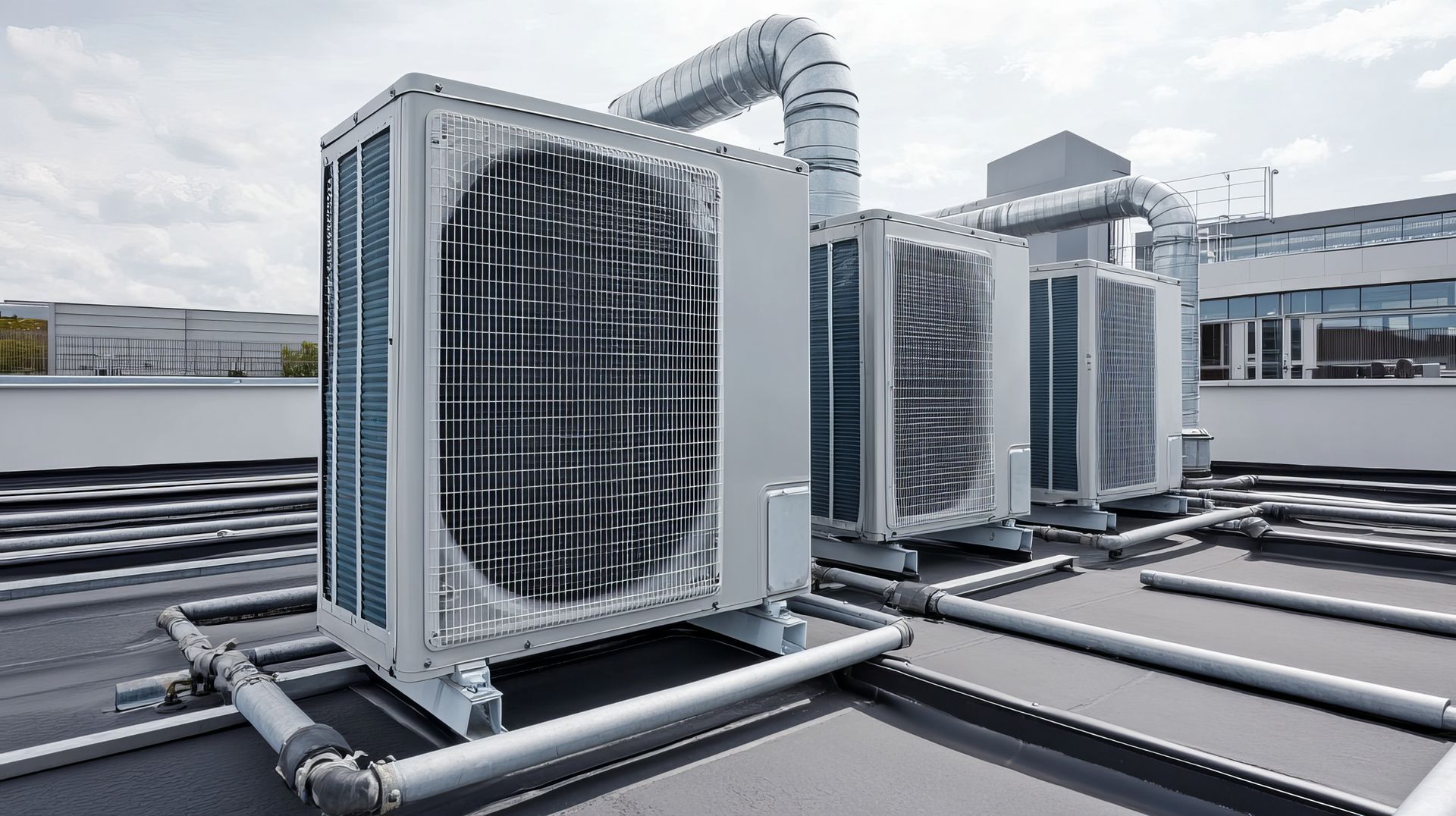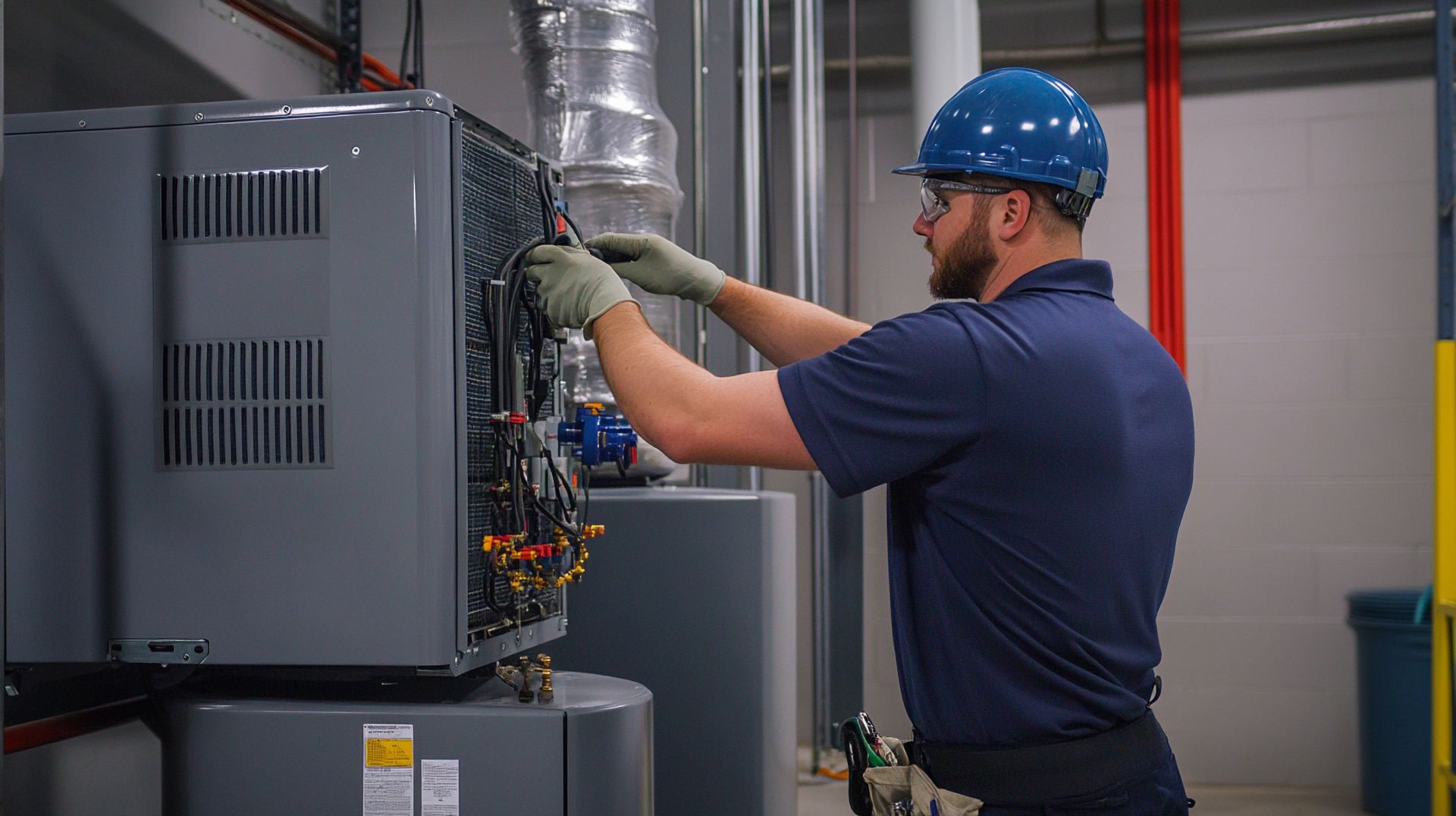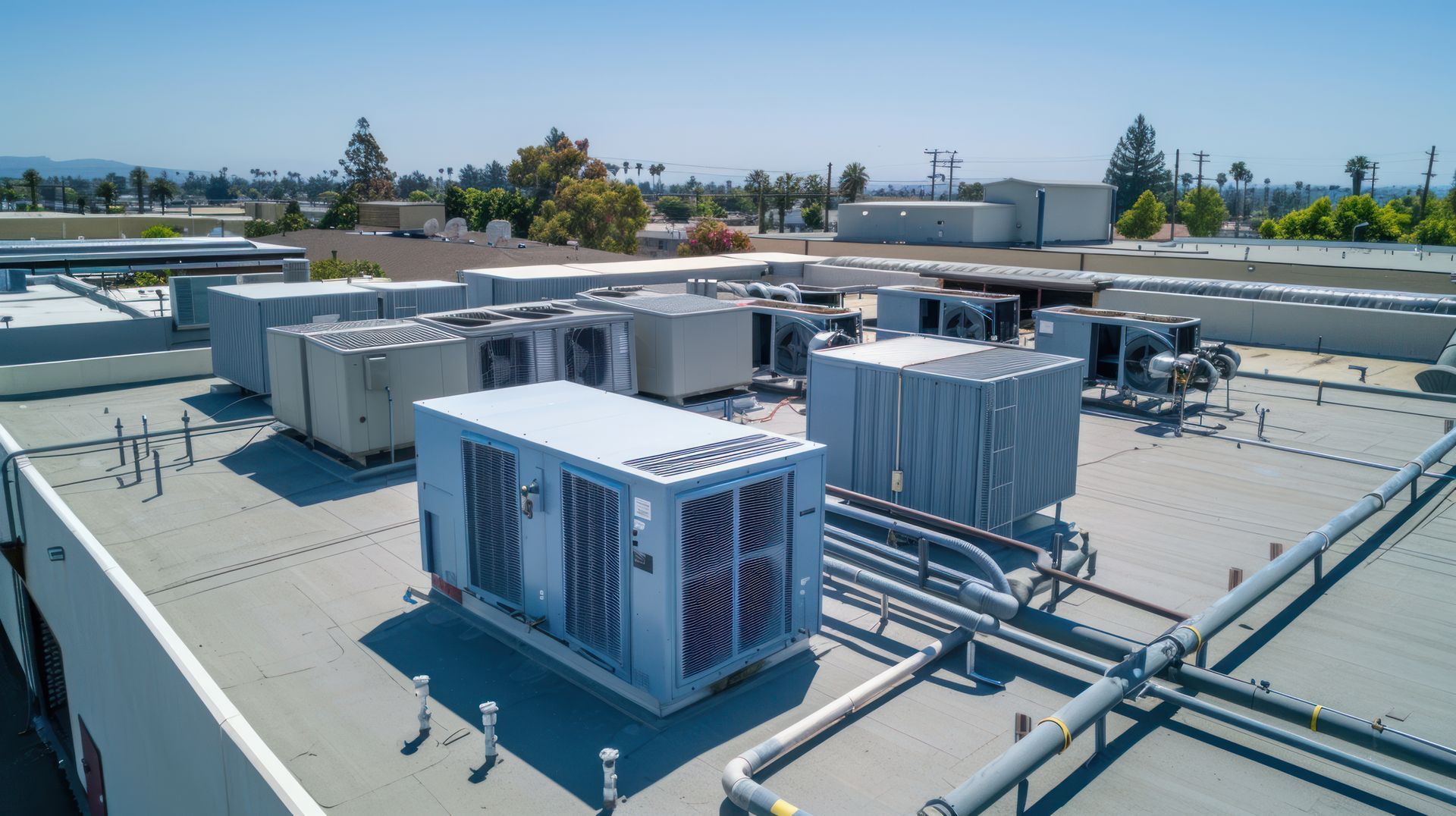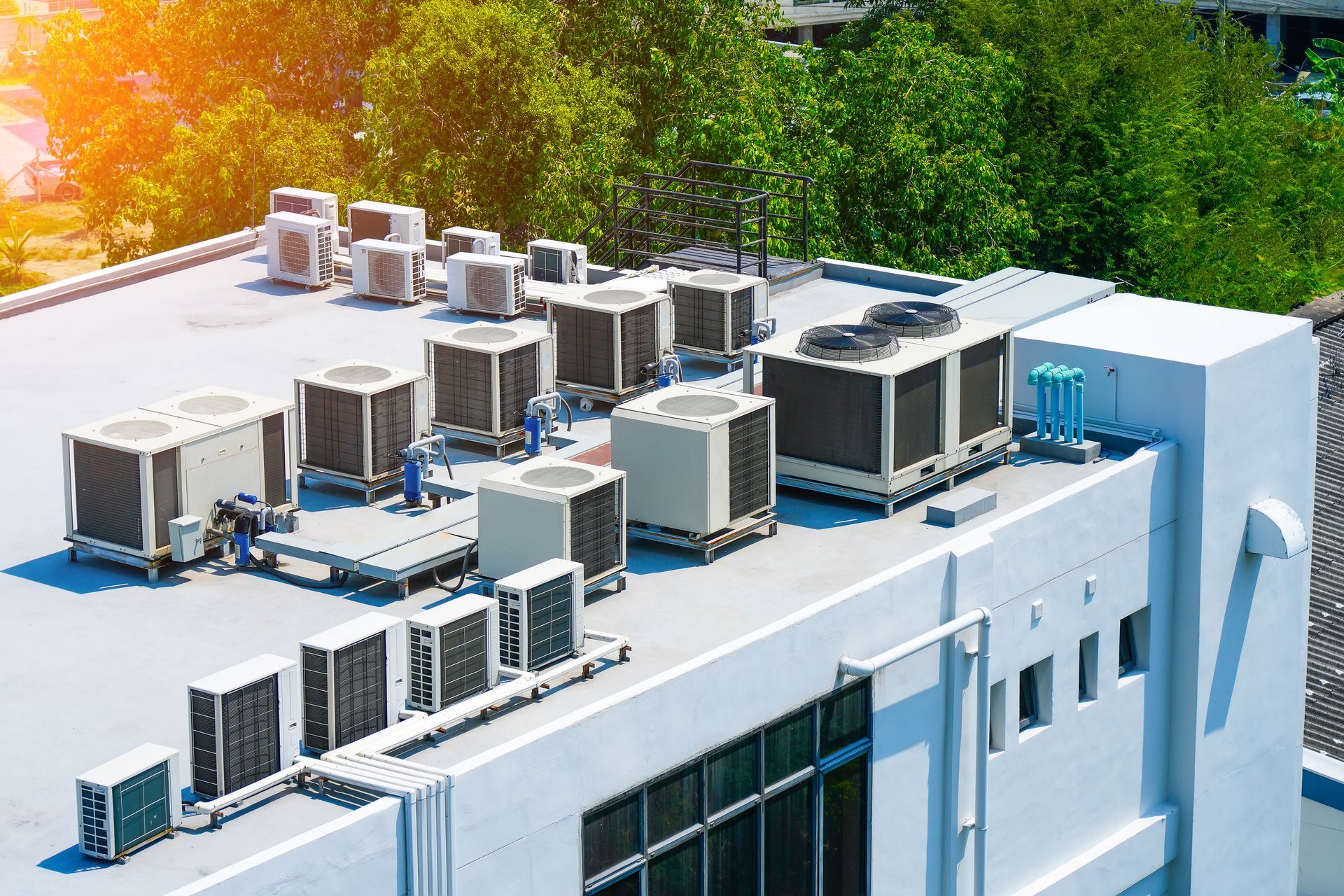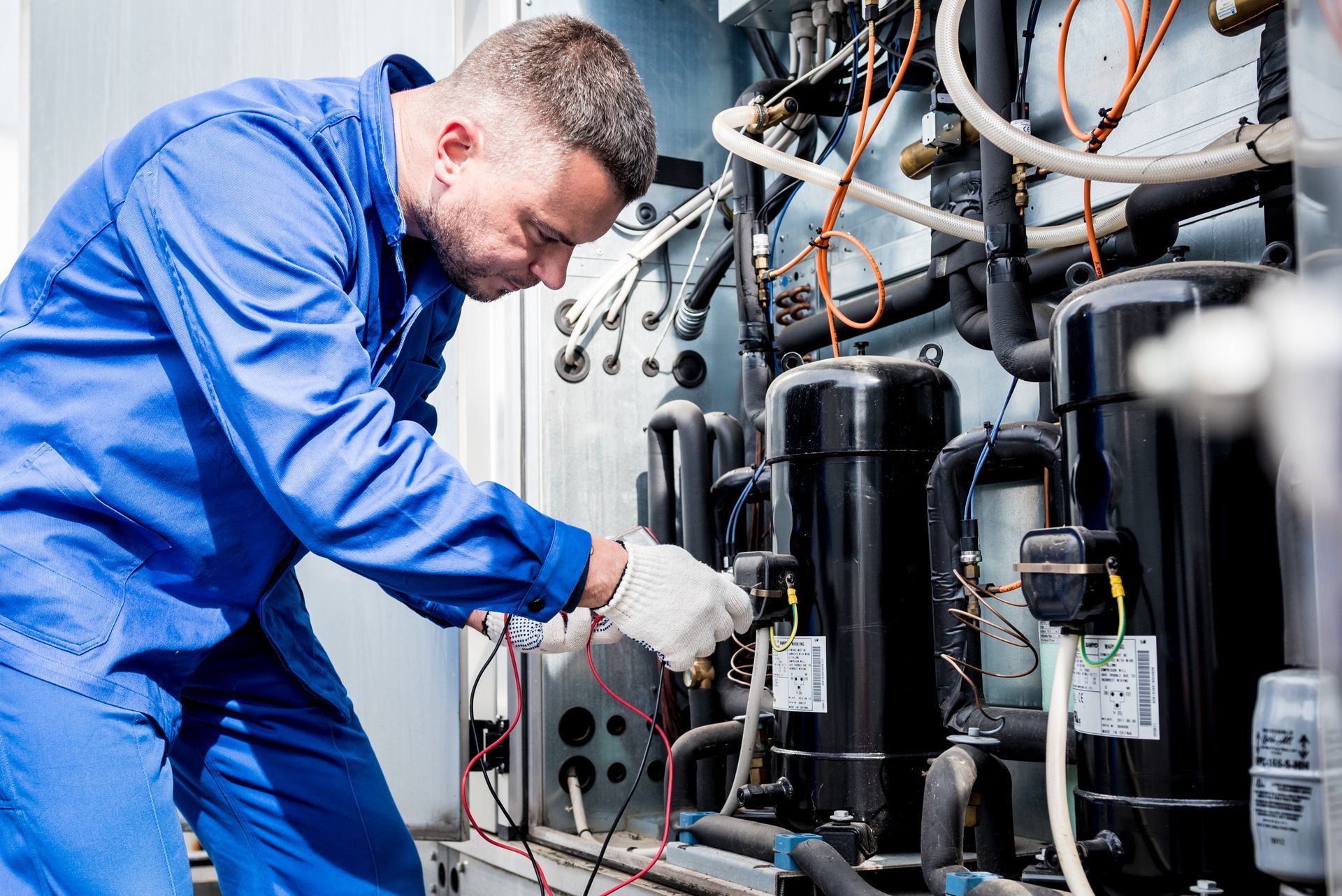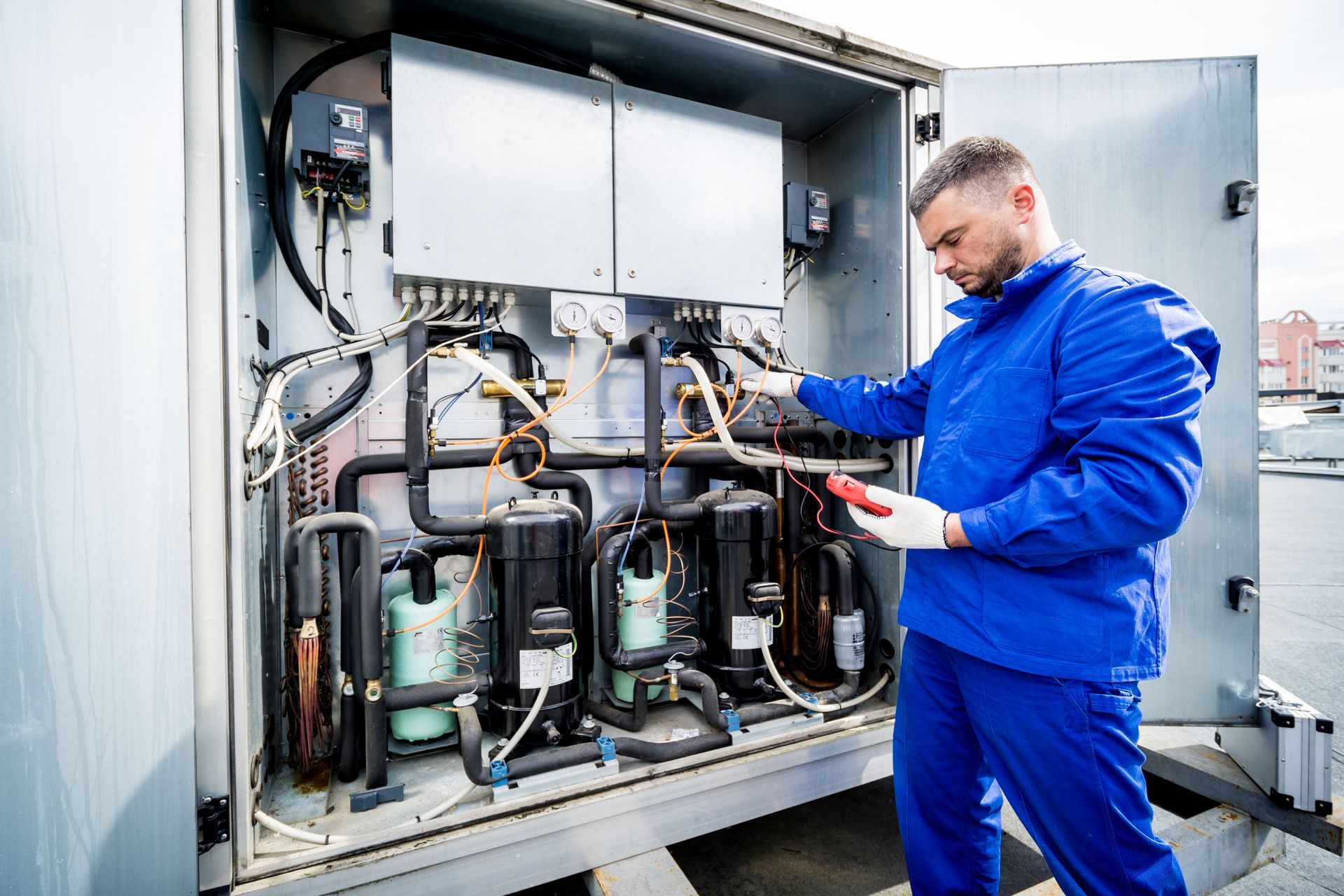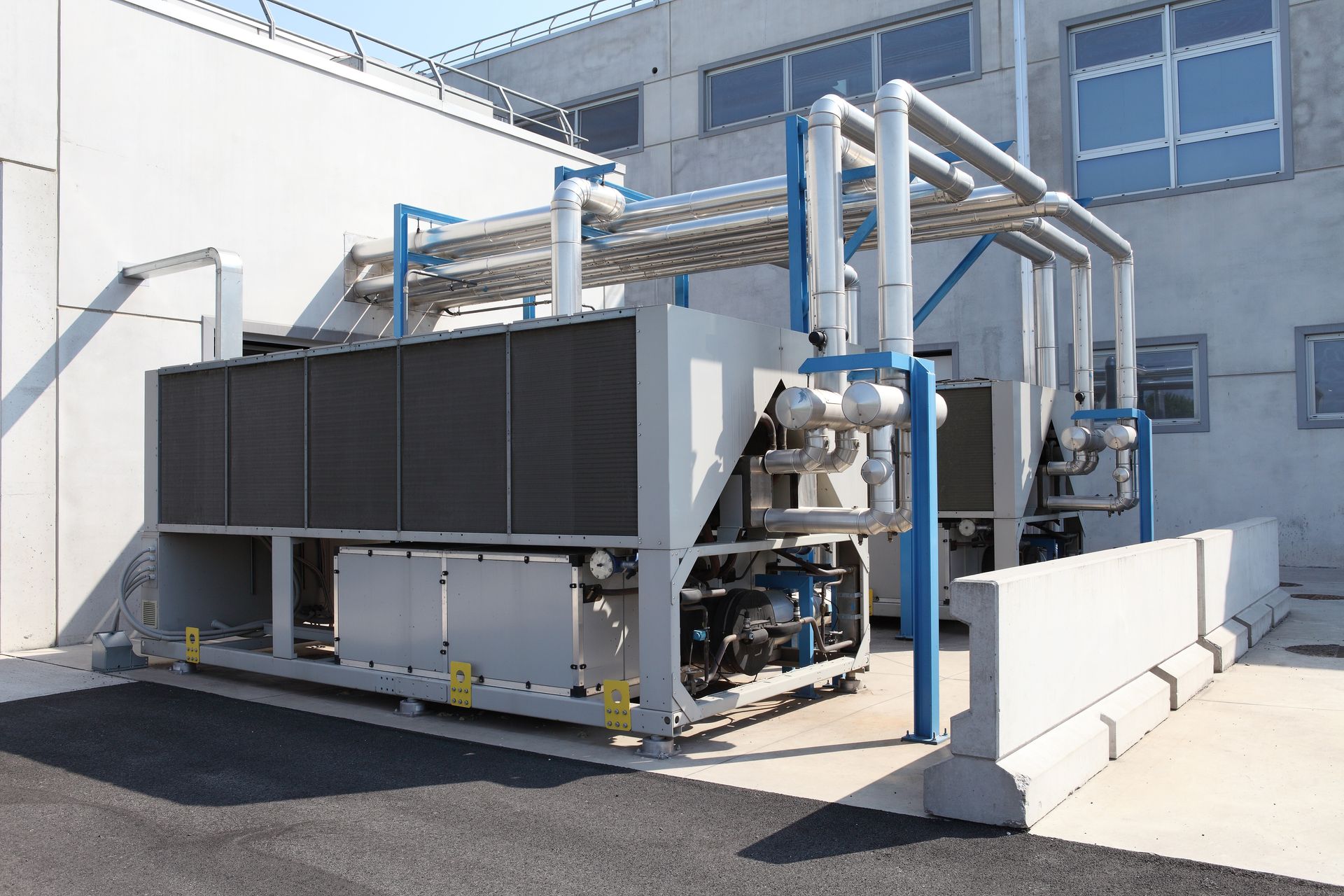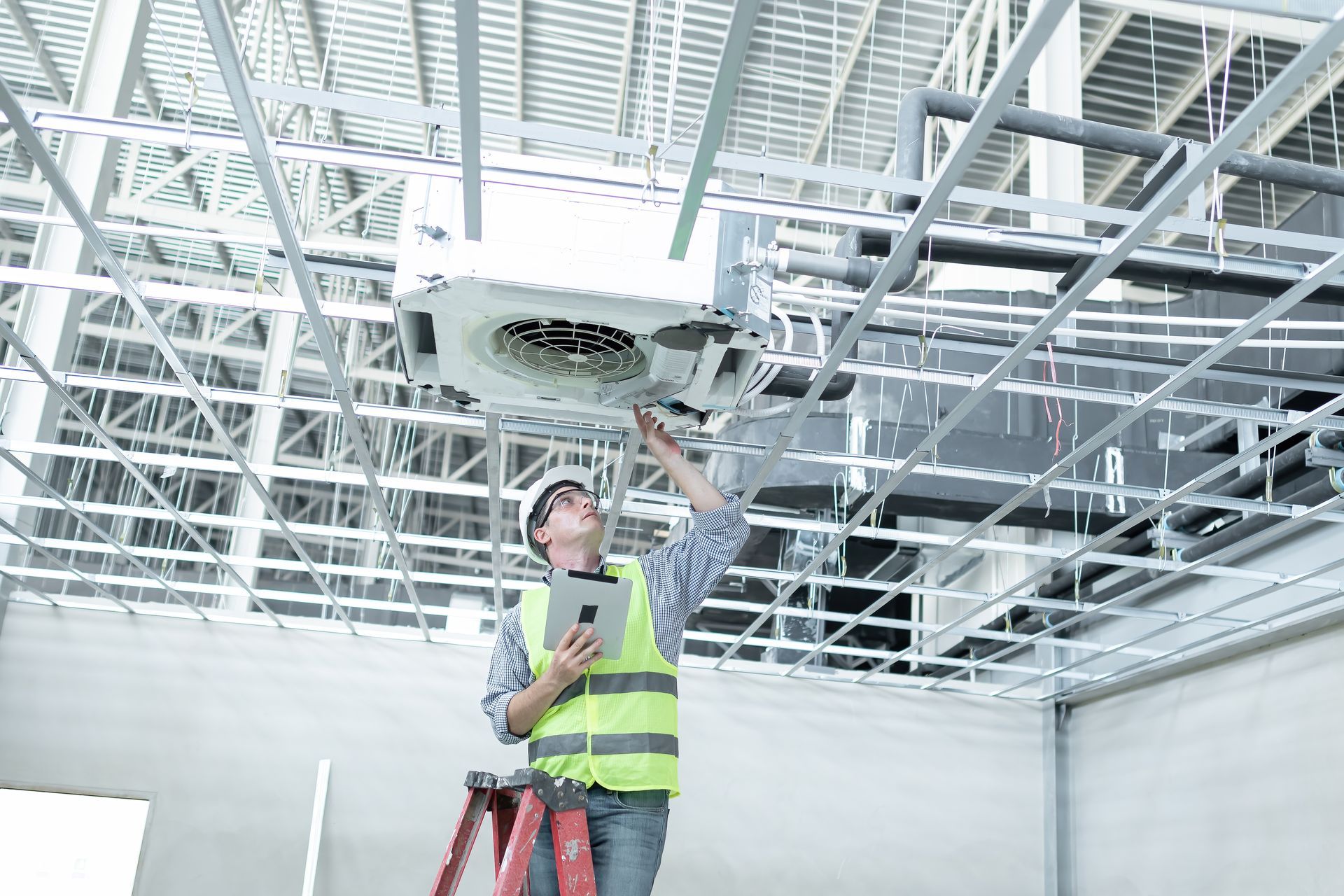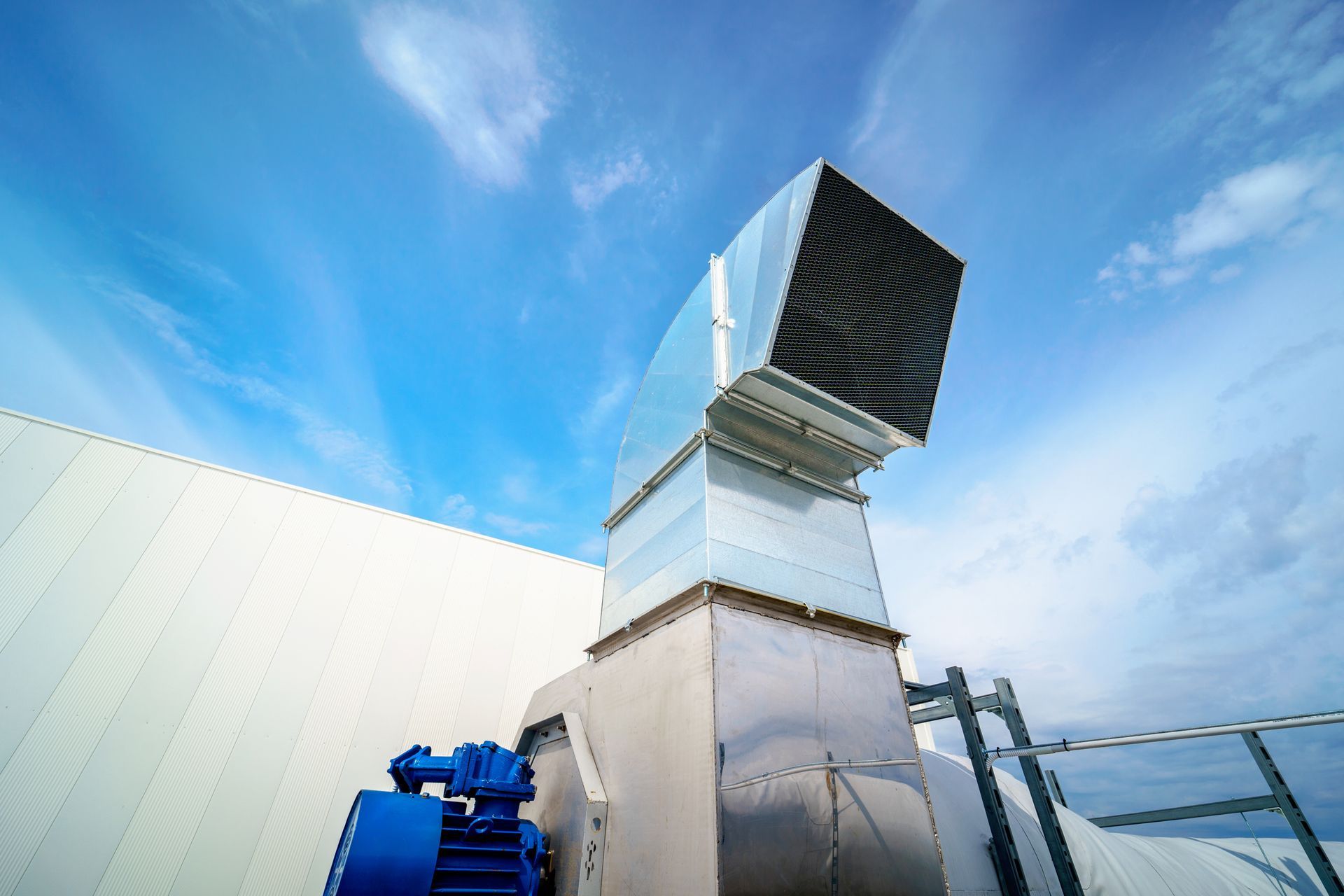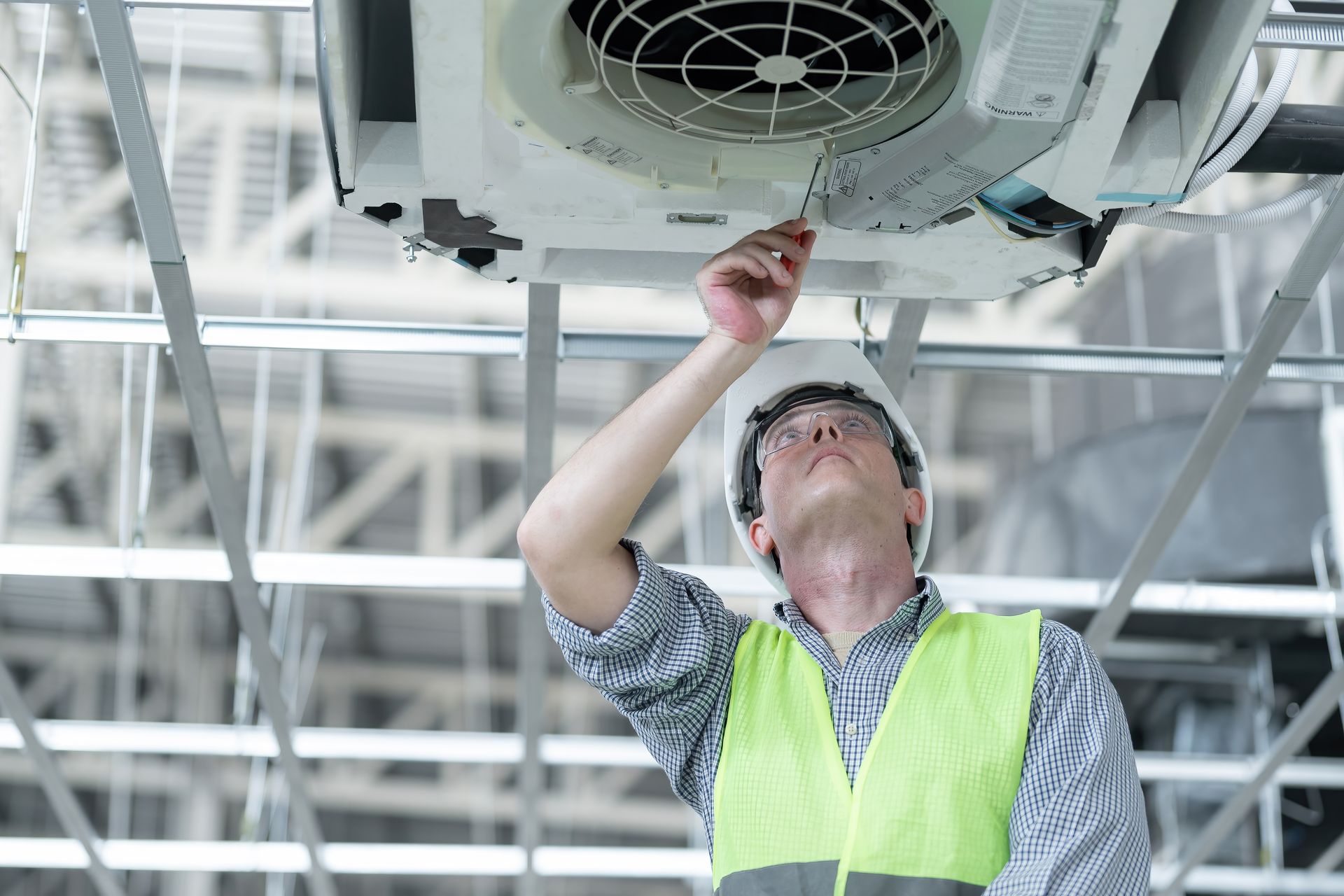COMMERCIAL SERVICES IN ARLINGTON
CALL TODAY!
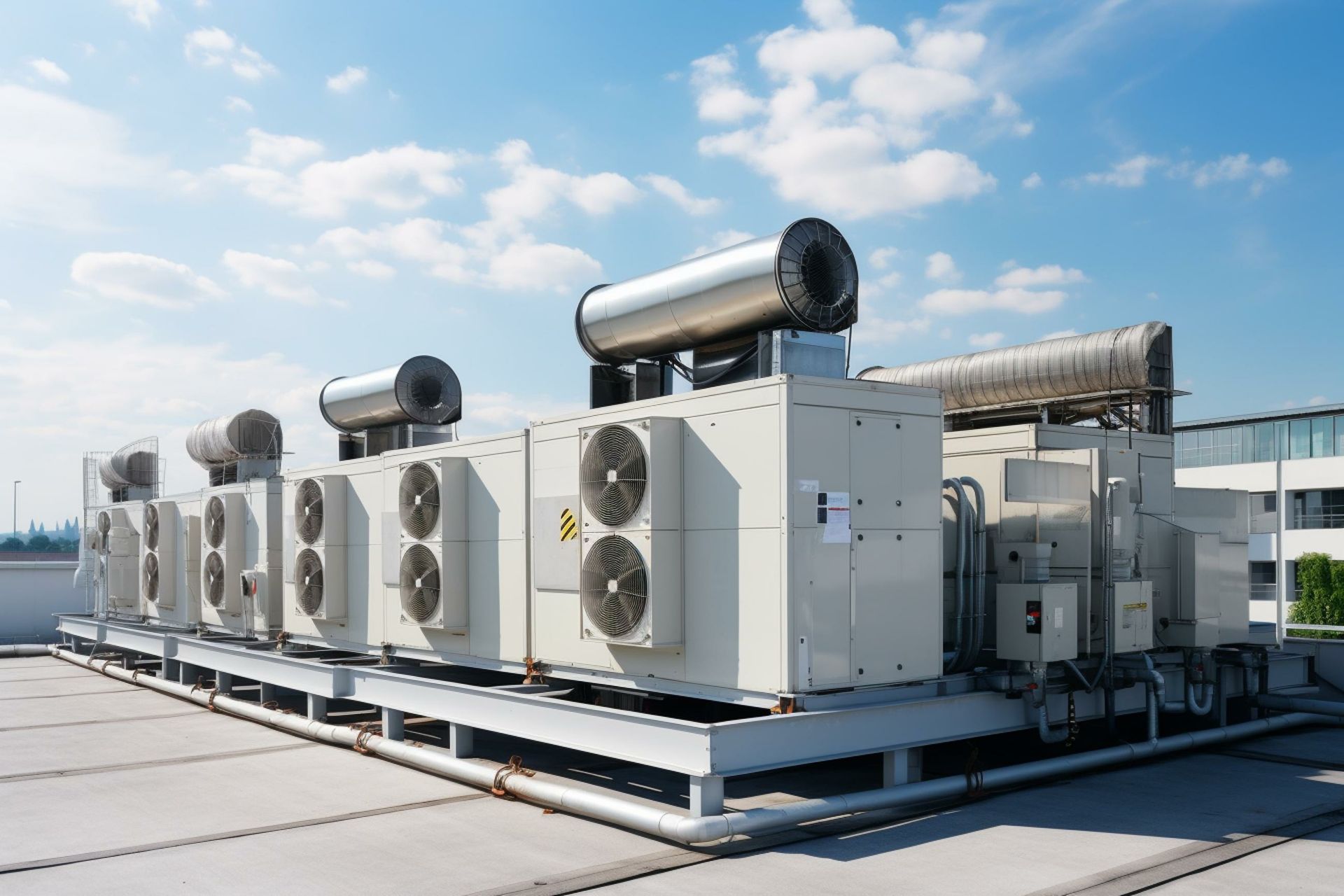
Maintaining commercial HVAC units is essential to ensure they operate efficiently, extend their lifespan and meet the needs of commercial enterprises, public institutions and industrial facilities. Regular maintenance not only helps reduce energy costs but also minimizes the chances of unexpected breakdowns, which can disrupt operations.
Regular Filter Changes
Commercial HVAC systems must have clean filters to function efficiently. Dirty or clogged filters reduce airflow, making the system work harder, which can lead to overheating and increased wear and tear. Changing filters regularly ensures the system’s efficiency and helps maintain good indoor air quality (IAQ).
Filters should be inspected every month and changed every one to three months depending on the usage and air quality requirements for the conditioned structure or area. Clean filters reduce energy consumption and improve the lifespan of the HVAC unit by preventing strain on the system.
The filter needs of a commercial property can vary significantly. A large retail building with rooftop units might have anywhere from 20 to 100 filters depending on the number of units and the building’s layout. Schools with many different classrooms can have dozens or even more than a hundred filters to check and replace. Multi-story office buildings might have 10 to 50 per floor, depending on the system setup and the size of the structure.
Commercial HVAC filter checks and replacements can be time-intensive tasks, but they are important for the health and comfort of occupants as well as the longevity of the system.
Cleaning Condenser and Evaporator Coils
The condenser and evaporator coils in an HVAC unit are essential for heat transfer. Over time, these coils can collect dust, dirt and debris, reducing their ability to absorb and release heat. Dirty coils force the system to work harder, increasing energy consumption and causing performance issues.
In some commercial environments, like industrial and manufacturing facilities, coils may be exposed to more dust, debris and pollutants, necessitating more frequent or aggressive cleaning than might be needed in a standard residential system.
The condenser and evaporator coils should be cleaned at least once a year, especially before the cooling season begins. Cleaning the coils improves heat transfer efficiency, ensuring the system can cool spaces effectively. Professional cleaning may also be a requirement of system warranties.
Checking Refrigerant Levels
For a commercial HVAC system to cool properly, it must maintain the correct amount of refrigerant. Low refrigerant levels can cause issues like reduced cooling capacity, increased energy consumption and even system failure. If refrigerant levels are too low, it may indicate a leak that needs to be addressed.
Refrigerant levels should be checked during routine maintenance visits, and any leaks should be repaired immediately. Because of the size of areas being temperature controlled, even small leaks can result in expensive energy waste. Leaks could also affect the cooling capacity for multiple zones or particularly large spaces, potentially disrupting operations.
Proper refrigerant levels provide optimal cooling performance and prevent damage to the compressor, one of the most expensive parts to replace.
Inspecting and Cleaning Ductwork
Ducts distribute conditioned air throughout the building, so any blockages, leaks or contaminants in the ductwork can negatively impact the HVAC system's efficiency. Ductwork should be inspected annually for leaks, blockages and cleanliness. Cleaning should be done as needed to remove dust, debris and any mold or mildew.
Clean and well-maintained ductwork provides efficient air distribution, reduces energy waste and improves indoor air quality.
Checking and Calibrating Thermostats
Thermostats in commercial buildings can be complex, especially for zoned systems controlling different areas with vastly different temperature control needs, like offices, high-capacity conference rooms and high-traffic areas. Proper calibration is important both to ensure adequate control and to prevent overburdening the system with inconsistent performance.
Some of the more complex commercial thermostats, like those with occupancy sensors, may require particular care and expertise to replace or service. Building managers may also need the assistance of HVAC professionals to properly sync these thermostats with a building automation system to tailor performance based on occupancy levels at different times of day.
Lubricating Moving Parts
The moving parts in a commercial HVAC system, such as fans, motors and bearings, need regular lubrication to minimize friction. Without lubrication, these components can wear out prematurely and cause the system to operate less efficiently. This is particularly vital in a commercial context where HVAC systems operate continuously under a far greater load than a residential system.
Industrial-sized fans and powerful motors require the use of special lubricant types designed to handle high temperatures and enormous stress. These large, complex systems should be serviced by trained, detail-oriented technicians who can perform this time-intensive task with accuracy and thoroughness.
Inspecting Electrical Components and Connections
Electrical issues are a common cause of commercial HVAC system failures due to the higher load. Short circuits and loose, frayed or corroded wires are more likely to lead to major disruptions in a commercial setting. The sophisticated wiring and control systems needed to manage interconnected zones can become extraordinarily complex in large buildings or complexes, and it’s necessary to ensure one connection won’t cause cascading failures that might disable temperature control in large portions of the building.
Keep Your Arlington Commercial HVAC System Running Smoothly
For expert assistance and advice on commercial HVAC maintenance, contact the reputable HVAC technician at Tom’s Commercial, Inc. in Arlington, TX.
Contact us today here on our website or give us a call at 817-857-7400.
Quick Links
License#: TACLA92393C
All Rights Reserved | Tom's Commercial

